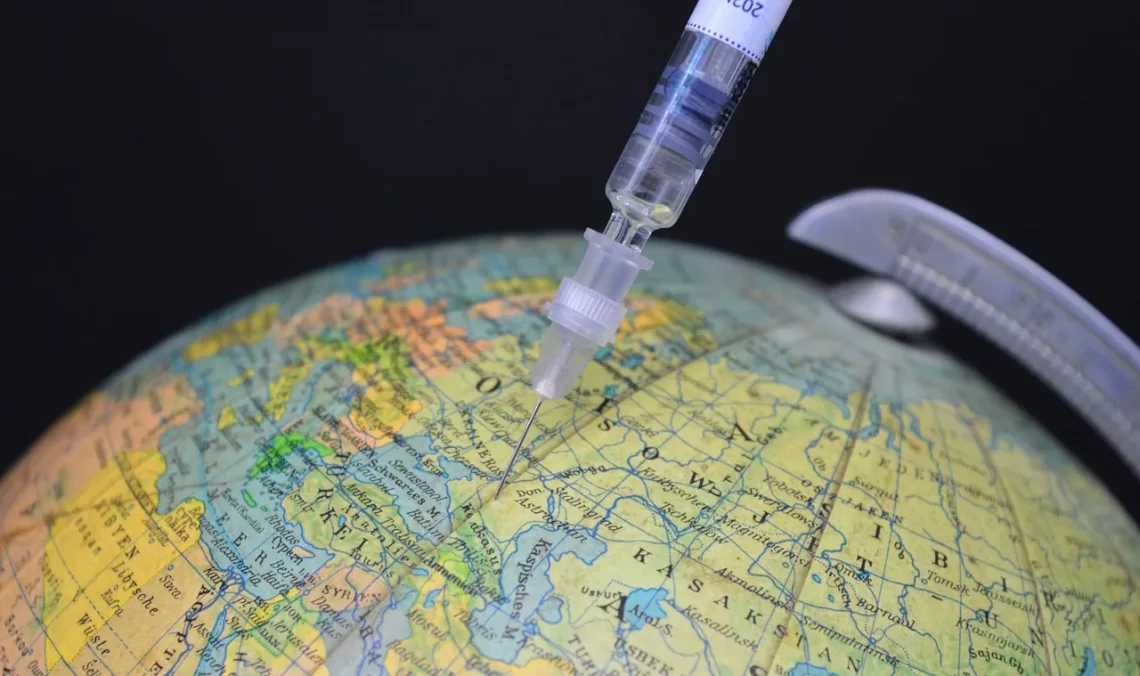
Understanding the FVRCPC Vaccine: Essential Protection for Cats
Vaccination is a critical aspect of pet care, and for cat owners, understanding the nuances of feline vaccines can make a significant difference in their pet’s health. With an array of vaccines available, it can be overwhelming to decipher which ones are essential and why. Among these, the FVRCPC vaccine stands out as a fundamental safeguard against several serious feline diseases.
Cats, like humans, can be susceptible to various infectious diseases, some of which can be life-threatening. The FVRCPC vaccine is designed to protect against feline viral rhinotracheitis, calicivirus, panleukopenia, and chlamydia. Each of these illnesses poses unique threats to a cat’s health, making the vaccine an essential part of their routine veterinary care.
Understanding the FVRCPC vaccine is not just about knowing the diseases it protects against; it’s also about understanding how it works, the importance of timing in vaccinations, and the role it plays in the broader context of feline health. As responsible pet owners, it is our duty to ensure that our cats receive the protection they need to lead healthy, happy lives.
What is the FVRCPC Vaccine?
The FVRCPC vaccine is a combination vaccine that protects cats from four significant diseases: feline viral rhinotracheitis (FVR), feline calicivirus (FCV), feline panleukopenia (FP), and feline chlamydia. Each of these diseases can have devastating effects on a cat’s health, making vaccination crucial.
Feline viral rhinotracheitis is caused by the feline herpesvirus and primarily affects the respiratory system. Symptoms can include sneezing, nasal discharge, and conjunctivitis, which can lead to more severe complications if left untreated.
Feline calicivirus is another respiratory illness that can cause symptoms ranging from mild to severe. In some cases, it can lead to pneumonia and systemic infections, particularly in young or immunocompromised cats.
Feline panleukopenia, often referred to as “feline distemper,” is a highly contagious viral disease that affects the gastrointestinal system and the immune system. It can cause severe vomiting, diarrhea, and can be fatal, especially in kittens.
Lastly, feline chlamydia is a bacterial infection that primarily affects the eyes and respiratory tract. It can lead to conjunctivitis and other serious complications if not promptly treated.
The FVRCPC vaccine is typically administered as a series of shots during a kitten’s early months and is followed by booster shots to maintain immunity. It is essential for every cat, regardless of whether they are indoor or outdoor pets, as these diseases can be easily transmitted.
The Importance of Vaccination for Cats
Vaccination plays a pivotal role in maintaining not only the health of individual cats but also the overall health of the feline population. By vaccinating your cat, you are not only protecting your pet but also contributing to the herd immunity that can prevent outbreaks of serious diseases.
Many of the diseases that the FVRCPC vaccine protects against are highly contagious and can spread quickly among cats, especially in environments where multiple cats reside, such as shelters or boarding facilities. For example, a single unvaccinated cat can introduce viruses into a community, putting all cats at risk.
Moreover, some of these diseases, like panleukopenia, can survive in the environment for extended periods, making it essential for all cats to be vaccinated, regardless of their lifestyle. Even indoor cats can be at risk if they come into contact with people who have been in contact with infected animals or if they are exposed to contaminated objects.
In addition to protecting against disease, vaccinations are often a requirement for boarding facilities, grooming services, and even some housing situations. Keeping your cat’s vaccinations up to date ensures that you can take advantage of these services without complications.
Overall, vaccination is a vital component of responsible pet ownership and ensures that your cat lives a longer, healthier life.
Potential Side Effects and Considerations
Like any medical intervention, the FVRCPC vaccine can have side effects, although most are mild and temporary. Common reactions may include slight swelling at the injection site, mild fever, or lethargy. These side effects typically resolve within a day or two.
In rare cases, more severe reactions can occur, such as allergic responses. Symptoms of a serious allergic reaction may include difficulty breathing, facial swelling, or vomiting. If you notice any of these symptoms following vaccination, it is crucial to contact your veterinarian immediately.
It’s important to discuss your cat’s health history with your veterinarian before vaccination. Certain underlying health issues may necessitate special considerations or adjustments to the vaccination schedule. For example, young kittens or immunocompromised cats might need a tailored vaccination plan to ensure their safety and effectiveness.
Additionally, while the FVRCPC vaccine is essential, it is part of a broader vaccination strategy. Your veterinarian will likely recommend other vaccines based on your cat’s lifestyle, age, and health status. Regular veterinary check-ups are key to maintaining your cat’s overall health and ensuring that they receive the appropriate vaccinations.
As a cat owner, being informed and proactive about your cat’s health can help mitigate risks and enhance their quality of life.
When to Vaccinate Your Cat
Timing is critical when it comes to vaccinations, particularly for kittens. The FVRCPC vaccine is usually administered in a series of three doses, starting at around six to eight weeks of age. These initial vaccinations help to build a robust immune response in young cats, who are particularly vulnerable to infectious diseases.
The initial series is typically followed by booster shots every one to three years, depending on the vaccine type and your veterinarian’s recommendations. It is essential to follow your veterinarian’s guidance to ensure that your cat remains adequately protected.
For adult cats, if they have never been vaccinated before, your veterinarian may recommend starting a new vaccination series. It is important to note that some vaccines may take several weeks to provide full immunity, so planning ahead is crucial if you are considering boarding your cat or introducing them to new environments.
In addition to routine vaccinations, keep an eye on your cat’s overall health and consult your veterinarian if you notice any changes in behavior or appetite. Regular veterinary visits will help ensure that your cat stays up to date on their vaccinations and health screenings.
By understanding the timing and importance of the FVRCPC vaccine, you can take proactive steps to protect your beloved feline companion.
—
This article is meant for informational purposes only and should not be considered medical advice. Always consult your veterinarian for the best health practices for your pets.




